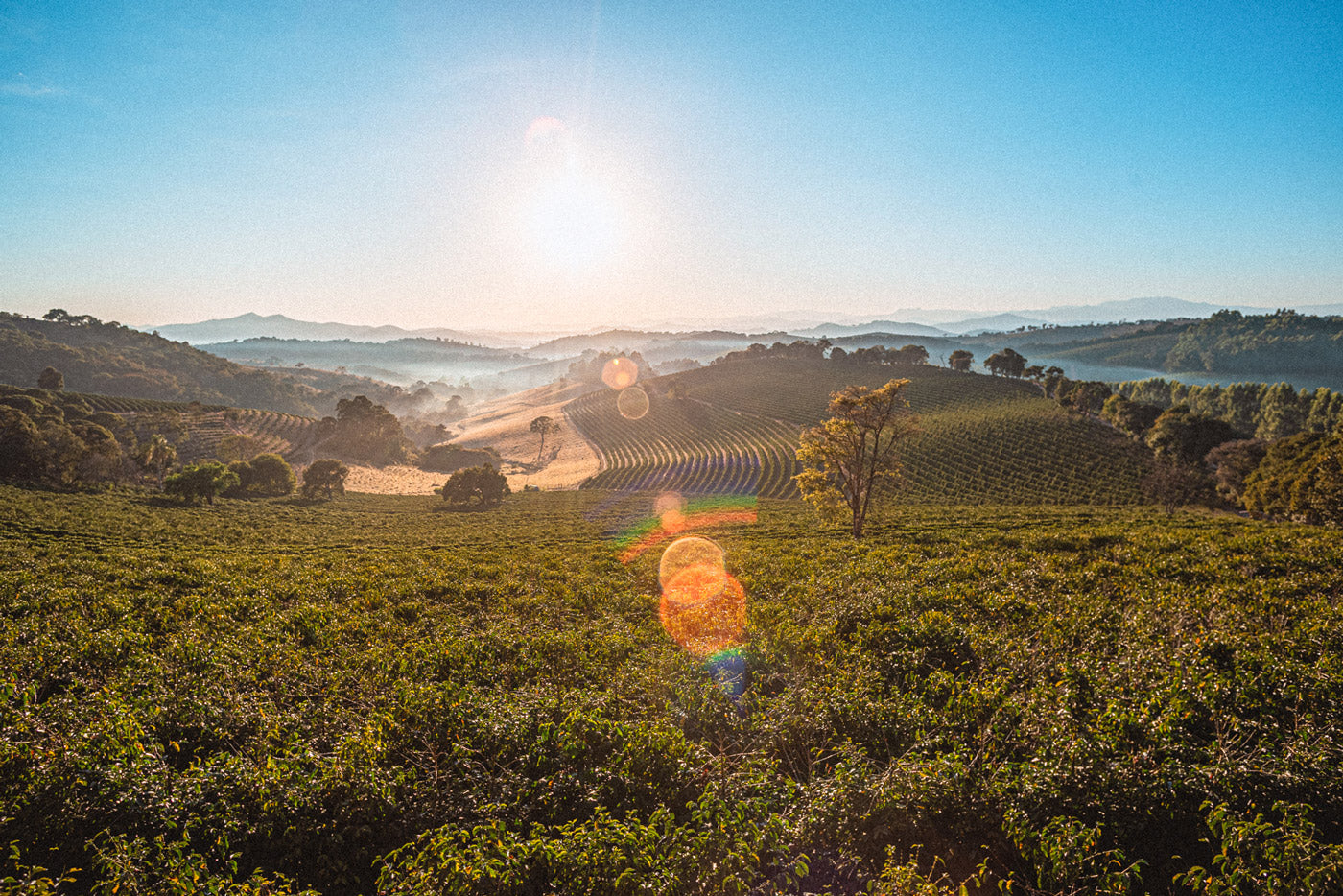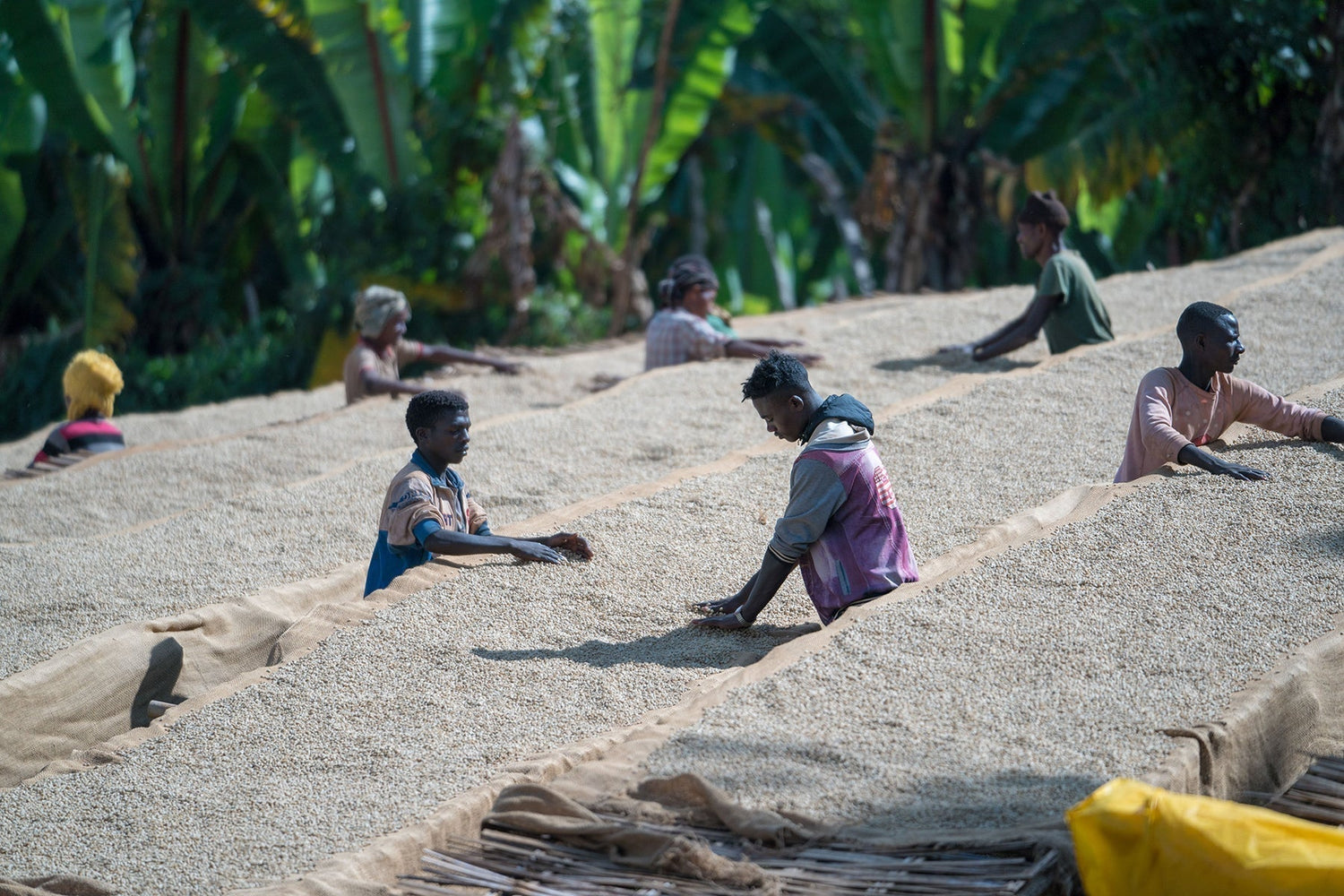Fairtrade coffee is becoming increasingly popular in Germany. But what is the difference between Fairtrade coffee and "conventional" coffee without a seal ? I can tell you one thing in advance. There are significant differences, particularly in terms of quality and taste, which should definitely be taken into account when making a purchase decision.
We will present all the background information and alternatives to Fairtrade coffee in this blog article. Discover the interesting processes, as well as the advantages and disadvantages of Fairtrade coffee! Elias Fischbacher from the Wildkaffee Rösterei wishes you lots of fun finding out more!
Fairtrade coffee – what is it anyway?
Fairtrade is a seal that stands for fairly grown and traded products . All ingredients must be 100% traded under fair trade conditions and physically traceable. As with many other certifications, Fairtrade also has not just one, but several different seals , some of which are tailored to other products such as cotton or mixed products (biscuits, chocolate).
But let's stick with coffee that has the "standard" Fairtrade product seal . The coffee must be 100% traded under Fairtrade conditions and be physically traceable. The advantage for the farmers and the cooperatives is the Fairtrade minimum price . This is to be understood as a safety net and is intended to cover the production costs for sustainable production. Then there is the Fairtrade premium , which is paid out as an investment in a social, ecological or economic project.

How prices are determined
How are the Fairtrade prices made up? This works according to a system that is internationally standardized . The Fairtrade Standards and Pricing Unit carries out a detailed analysis in which proposals for minimum prices and premiums are submitted to the Standards Committee for a vote. These Fairtrade coffee prices are then agreed upon by producer networks, national Fairtrade organizations and trade organizations. This then creates a fixed price that is intended to cover the production of Fairtrade coffee.
Advantages & Disadvantages of Fairtrade Coffee
Advantages
The advantage is obvious. Fair trade is playing an increasingly important role, not only in the coffee business, but especially in the coffee business, because the beans mostly come from developing countries such as Ethiopia or Rwanda. In these countries, the growing conditions and fairness in trade need to be improved. Fairtrade wants to provide support with minimum prices and fair wages , as well as investments in their ecological projects. This helps the farmers to be a little more independent of fluctuating coffee prices. Ecological fairness is also part of Fairtrade coffee. Environmentally harmful production methods are avoided. This protects the employees on the farms, as well as, of course, nature and the soil on which the coffee is supposed to grow.
Disadvantages
But despite all the positive qualities, there are also some points of criticism! A general problem is the great lack of transparency. In addition to the "normal" Fairtrade seal, there are 7 other seals that come from Fairtrade. The fairly traded ingredients contained also vary, which are difficult for the consumer to see despite the different seal. But let's stick with coffee! Since Fairtrade coffee must contain 100% coffee beans , this mixed product rule does not apply. However, there are big differences in the quality and taste of Fairtrade coffee compared to other types of coffee without the Fairtrade seal. The exact system and pricing of Fairtrade is often used by farmers to sell cheaper, slightly lower quality coffee with the Fairtrade markup, while the higher quality coffee is sold on the open market. It is not at all unlikely that this inferior coffee then ends up in German supermarkets.
The crux of the matter with certification
In order to be allowed to sell Fairtrade coffee, the farmers must first go through a certification process. This is very expensive and, as with the organic seals, is only possible for established cooperatives. The application fee alone is €525 , followed by the initial certification for €2,300 . These fees are then charged annually. In return, the farmers receive ongoing advice on how to increase productivity. Nevertheless, these sums are a considerable amount of money, especially for coffee farmers in emerging countries, and they face a risk.

Alternative - direct import
We at the Wildkaffee Rösterei rely on direct imports when purchasing coffee , because the fewer intermediate stages a green coffee has to go through, the better it is not only for the producer, but also for us as the recipient of the goods. This way we know exactly where our coffee comes from. This makes it clear to us which country or region the beans come from . But not only the origin, but also the farm or cooperative, as well as the type of harvest and further processing are clearly understandable to us. Constantly maintaining relationships is a great help to us in this regard.
By regularly visiting the plantations and farmers , we can always check the conditions and working methods. Regular cuppings and green coffee checks also help us not to lose sight of the quality of the coffee. It is also important to us to get our hands dirty ourselves from time to time, because you can only really understand and comprehend what you have done yourself. The long-standing, direct trading relationships with the farmers give these people the security that their coffee is actually being bought at a fair price. This makes their work plannable and also increases the quality, because the farmers know: better quality, better price ! It is basically a give and take - better goods, better living conditions! Fair coffee is also possible without a seal - fairly traded thanks to direct trade.

Conclusion!
Fairtrade and coffee are being criticized. The opaque forest of seals makes it difficult for consumers to distinguish mixed products from pure Fairtrade products. However, this does not apply to Fairtrade coffee, as coffee is a single-variety product. Due to the rigid system, Fairtrade coffee is often not the highest quality. The payment is mostly correct, but the extra cost that the end consumer pays in the supermarket or organic shop does not really reach the plantations . In this case, coffees that do not have a seal but source their coffee directly from the plantations are recommended. In short, the fewer intermediate steps there are, the more goes to the farmer !


